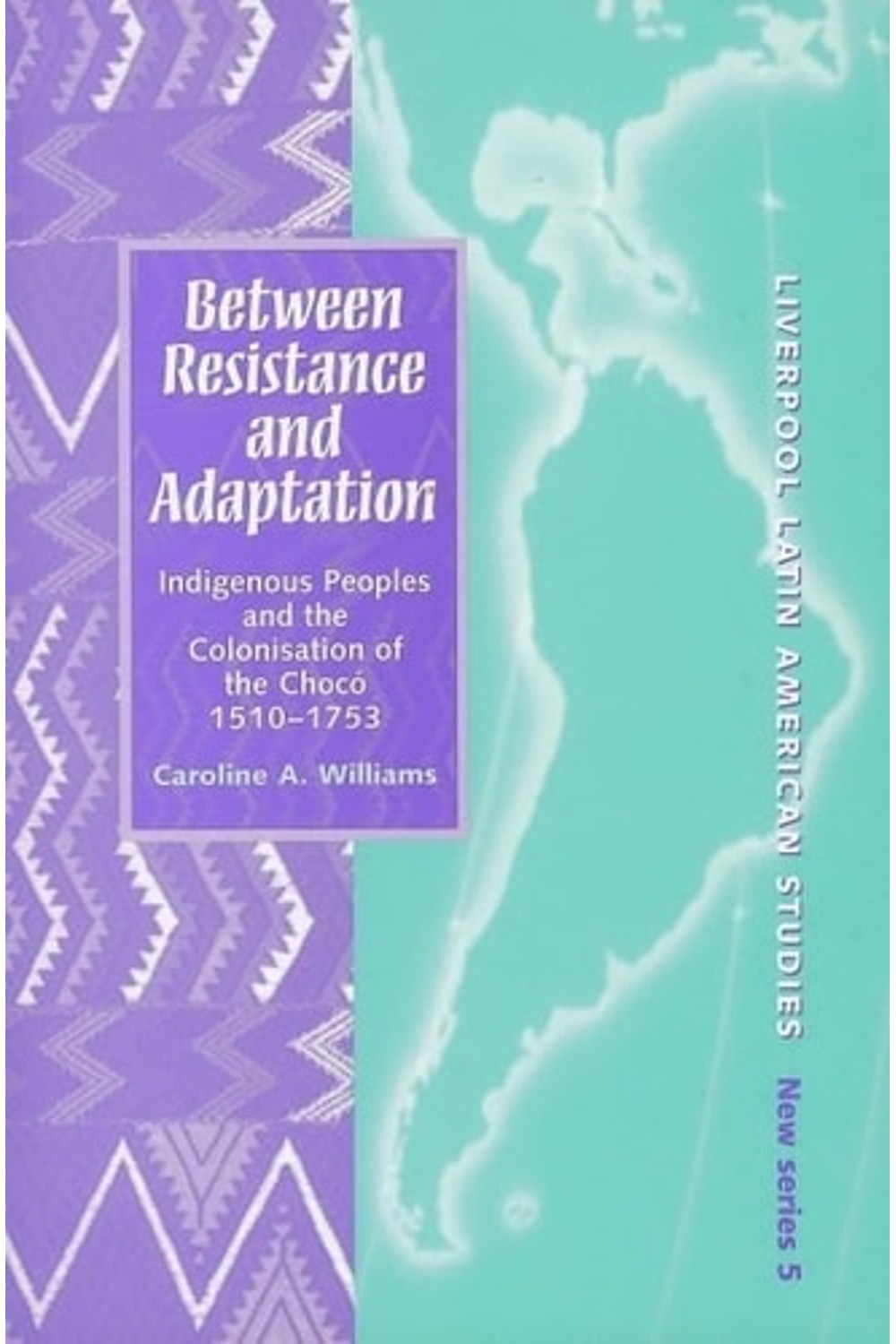Dive into the little-known history of colonial Colombia with Caroline A. Williams’ “Between Resistance and Adaptation.” This insightful study, part of the Liverpool Latin American Studies series, unveils the intricate power dynamics between the indigenous populations of the Choc region and Spanish colonizers from 1510 to 1753. Challenging traditional narratives, Williams reveals a world of shifting alliances, strategic adaptations, and unexpected collaborations. Explore how indigenous communities navigated colonial rule, maintaining their cultural identity while confronting Spanish influence. Uncover the complexities of inter-ethnic relations in a frontier zone where resistance and accommodation were intertwined. Essential reading for anyone interested in Latin American history, colonial studies, or indigenous cultures. This paperback edition offers 256 pages of meticulously researched history.
Between Resistance and Adaptation: Indigenous Peoples and the Colonisation in the Choco, 1510-1753 (Liverpool Latin American Studies LUP)
19,85 $
In stock
Description
A study of the interactions between Indians and Spaniards in the Choc throughout much of the colonial period, revealing the complexity of inter-ethnic relations in frontier regions. The author considers the changing relationships not only between Spaniards and Indians but also between factions of both groups, showing how Spaniards and Indians sometimes allied with each other against other ethnically mixed groups with different agendas. No similar study covers this topic.
Explore the intricate and often surprising dynamics of colonial interactions in the Choc region of South America with Caroline A. Williams' groundbreaking book, "Between Resistance and Adaptation: Indigenous Peoples and the Colonisation in the Choco, 1510-1753." Published by Liverpool University Press as part of the prestigious Liverpool Latin American Studies series, this meticulously researched study offers a fresh perspective on the complex relationships between indigenous communities and Spanish colonizers during a pivotal period. Unlike traditional narratives that portray a simple dynamic of oppressor and oppressed, Williams delves into the nuanced realities of the Choc frontier. Spanning from the early years of Spanish arrival in 1510 to 1753, the book vividly illustrates a landscape where alliances shifted, agendas clashed, and ethnic identities were constantly negotiated. Williams meticulously uncovers how indigenous groups, far from being passive victims, actively resisted Spanish domination while simultaneously adapting to the changing circumstances of colonial rule. The book demonstrates that interactions extended far beyond mere conflict. It highlights instances where Spaniards and indigenous groups formed strategic alliances against common enemies, showcasing the fluidity and pragmatism that characterized inter-ethnic relations. This challenges simplistic notions of a unified Spanish agenda or a monolithic indigenous response. Caroline A. Williams masterfully analyzes the internal dynamics within both Spanish and indigenous societies. Factions within each group often held divergent interests, leading to complex power struggles and unexpected collaborations. The book explores how these internal divisions shaped the overall trajectory of colonial encounters in the Choc. By examining the interplay of these various actors, Williams provides a more complete and nuanced understanding of the colonial experience. The Choc region, known for its challenging terrain and rich natural resources, served as a unique laboratory for colonial interactions. Williams expertly navigates the region's geographical complexities, demonstrating how the environment influenced the strategies of both colonizers and indigenous populations. The book sheds light on the economic motivations driving Spanish interest in the Choc, particularly the exploitation of gold and other valuable resources, and how these economic imperatives shaped the relationship between the Spanish and the native populations. Furthermore, "Between Resistance and Adaptation" meticulously investigates the cultural transformations that occurred in the Choc as a result of colonial encounters. The book explores the impact of Spanish language, religion, and social customs on indigenous societies, while also highlighting the ways in which indigenous cultures persisted and adapted in the face of colonial pressures. This is more than just a historical account; it's a deep dive into the strategies of survival and the enduring spirit of the indigenous peoples of the Choc. A valuable resource for students and scholars of Latin American history, colonial studies, and indigenous history, "Between Resistance and Adaptation" offers a compelling and thought-provoking examination of a critical chapter in the history of the Americas. Discover the forgotten stories of the Choc and gain a new appreciation for the complexities of colonial encounters. This first edition paperback offers 256 pages of carefully researched insights, presenting a pivotal contribution to the field.
Additional information
| Authors | |
|---|---|
| Binding | |
| Condition | |
| ISBN-10 | 0853236992 |
| ISBN-13 | 9780853236993 |
| Language | |
| Pages | 256 |
| Publisher | |
| Year published | |
| Weight | 408 |
| Edition | 1 |
| Dewey decimal | 986.15102 |
SKU: M-9780853236993-0
Category: LATIN AMERICA_HISTORY
- Additional information
- Currencies
- USD – United States dollar
- EUR – Euro
- GBP – Pound sterling
- CNY – Chinese yuan
- BRL – Brazilian real
- MXN – Mexican peso
- JPY – Japanese yen
- PHP – Philippine peso
- THB – Thai baht
- PLN – Polish złoty
- CAD – Canadian dollar
- MYR – Malaysian ringgit
- AUD – Australian dollar
- TWD – New Taiwan dollar
- CZK – Czech koruna
- SEK – Swedish krona
- HUF – Hungarian forint
- ILS – Israeli new shekel
- CHF – Swiss franc
- HKD – Hong Kong dollar
- DKK – Danish krone
- SGD – Singapore dollar
- NOK – Norwegian krone
- NZD – New Zealand dollar

